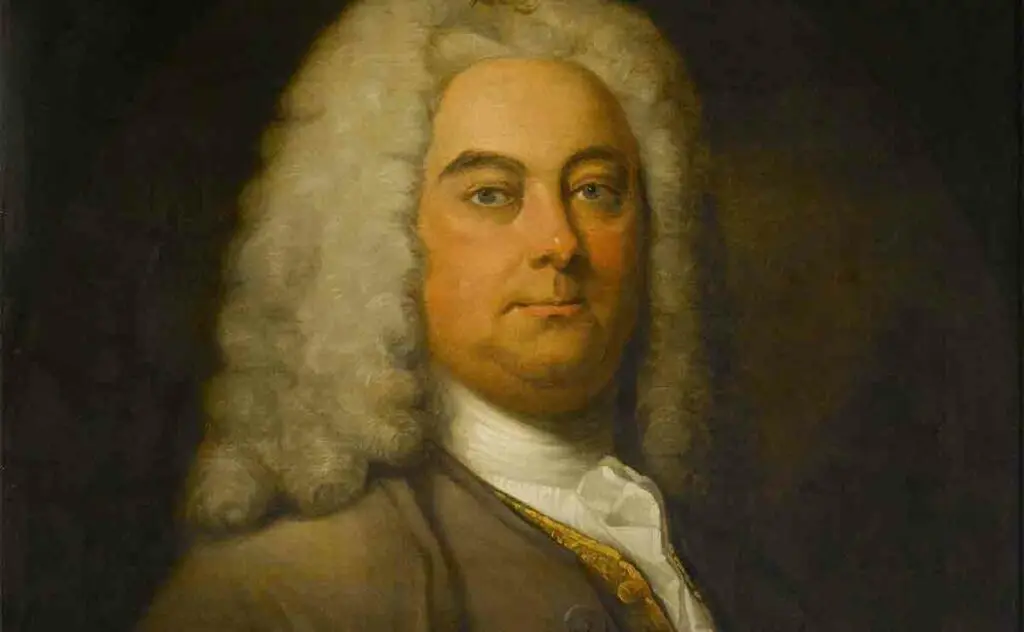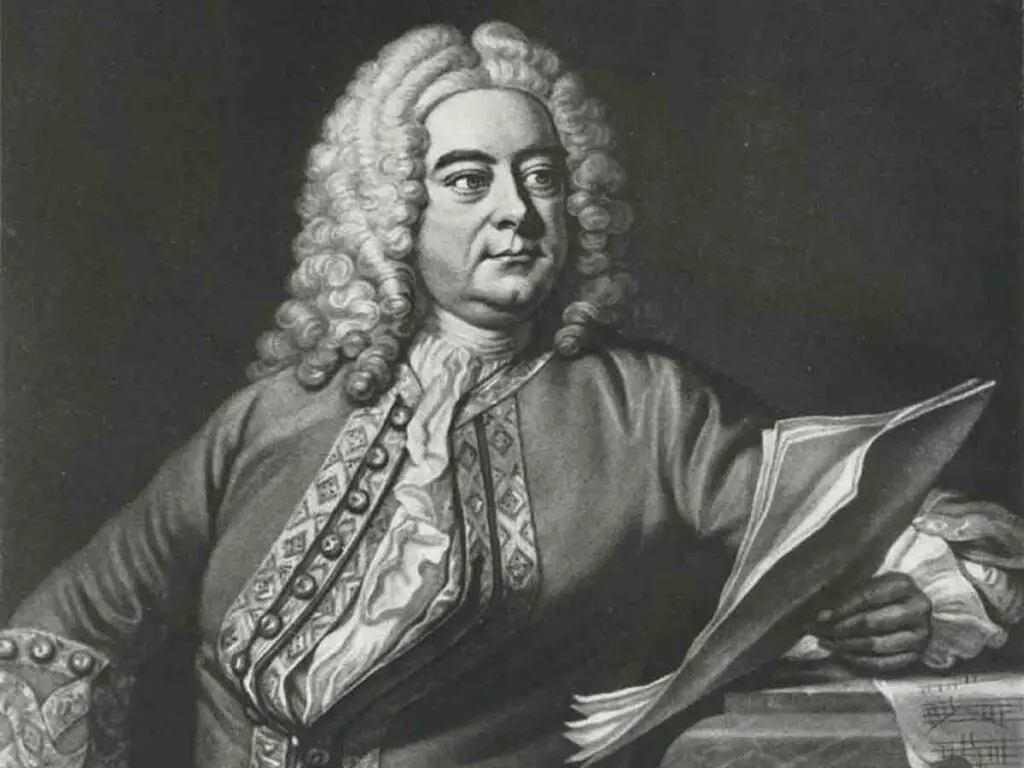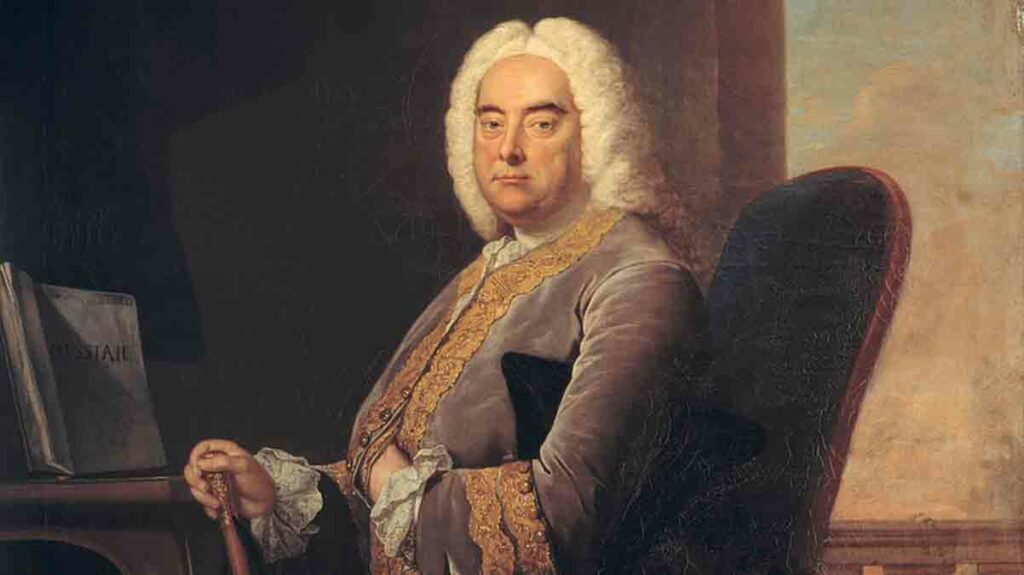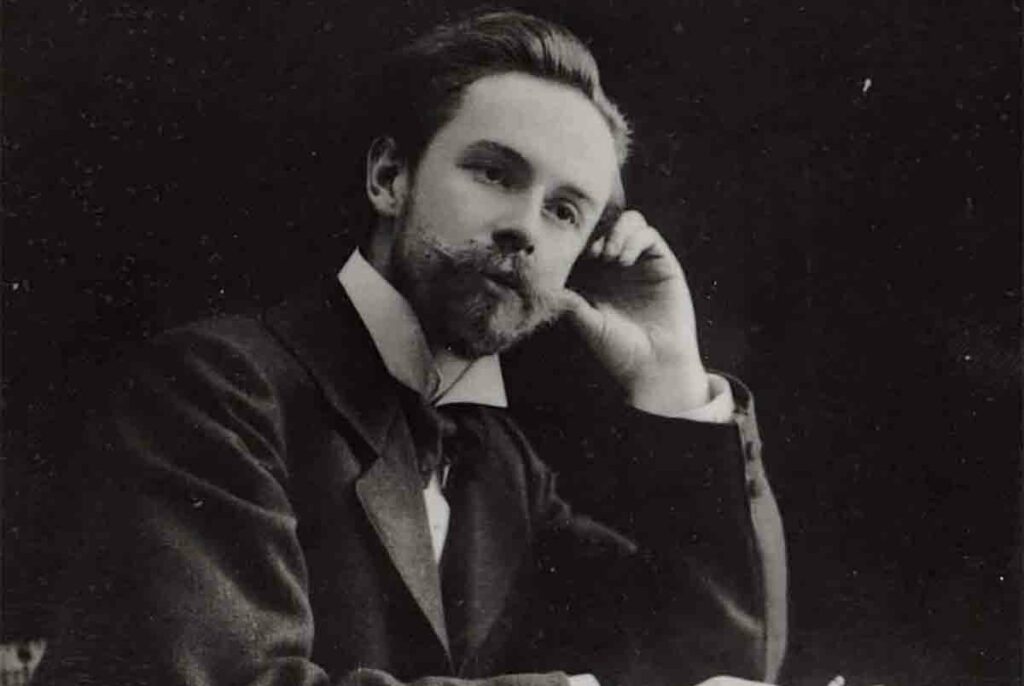Classical music cannot be imagined without the brilliant operas of the composer Georg Friedrich Händel. Art critics are sure that if this genre was born later, the maestro could successfully carry out a complete reform of the musical genre.
George was an incredibly versatile person. He was not afraid to experiment. In his compositions one can hear the spirit of the works of English, Italian and German maestro. At the same time, he did not tolerate competition, considering himself almost a God. A bad character prevented the maestro from building a happy personal life.

Childhood and youth
The maestro's date of birth is March 5, 1685. He comes from the small provincial German town of Halle. At the time of Handel's birth, the head of the family was over 60 years old. The parents raised six children. The mother brought up the children according to religious laws. After the birth of little George, the woman gave birth to several more children.
Handel's interest in music developed early. This did not suit the head of the family, who dreamed that George would master the profession of a lawyer. The boy had mixed feelings. On the one hand, he considered the profession of a musician to be frivolous (at that time, almost all residents of Western Europe thought so). But, on the other hand, it was the creative work that inspired him.
Already at the age of 4 he played the harpsichord perfectly. His father forbade him to play the instrument, so Georg had to wait until everyone in the house fell asleep. At night, Handel climbed into the attic (the harpsichord was kept there) and independently studied the nuances of the sound of a musical instrument.
Georg Friedrich Händel: Acceptance of son's attraction
His father's attitude towards music changed when his son was 7 years old. One of the noble dukes expressed his opinion regarding Handel's talent, which will convince the head of the family to relent. The Duke called George a real genius and called on his father to help develop his talent.
Since 1694, the musician Friedrich Wilhelm Zachau was engaged in the boy's musical education. Thanks to the efforts of the teacher, Handel effortlessly mastered playing several musical instruments at once.
Many critics call this period of his creative biography the formation of Handel's personality. Zachau becomes not only a teacher, but also a real guiding star.
At the age of 11, Georg takes the place of an accompanist. The musical skill of the young talent impressed the Elector of Brandenburg Frederick I so much that after the performance he invited George to serve him. But before entering the service, Handel was forced to get an education.

Elector, will offer the father to send the child to Italy. The head of the family was forced to refuse a high-ranking duke. He was worried about his son and did not want to let him go so far. Only after the death of his father, Handel was able to freely dispose of his talent and desires.
He received his education in his native town of Gall, and in 1702 he began to study law and theology at the University of Gall. Unfortunately, he never completed his higher education. In the end, the desire to become a musician took possession of him completely.
The creative path and music of the composer Georg Friedrich Händel
In those days, only in the territory of Hamburg there was an opera house. Cultural residents of European countries called Hamburg the capital of Western Europe. Thanks to the patronage of Reinhard Kaiser, Georg managed to get on the stage of the opera house. The young man took the place of violinist and harpsichordist.
Soon the presentation of the debut operas of the great maestro took place. We are talking about the musical creations of "Almira" and "Nero". It is noteworthy that most of the opera is performed in the native language of Italians. The fact is that Handel considered the German language rude for such romantic motives. The presented operas were soon staged on the stage of the local theater.
Handel was repeatedly tried to get high-ranking nobles for personal orders. For example, at the insistence of the Medici family, he was forced to move to Italy. There, he taught children how to play various musical instruments. This family appreciated the composer, and even sponsored the release of the master's subsequent creations.
Handel was lucky because he happened to visit Venice and Rome. Interestingly, it was impossible to compose operas on the territory of these states. Handel found a way out. During this period of time he composes oratorios. The composition "The Triumph of Time and Truth" deserves special attention.
Upon arrival in Florence, the master staged the opera Rodrigo (1707), and in Venice - Agrippina (1709). Note that the last work is considered the best opera written in Italy.
In 1710 the maestro visited Great Britain. During this period of time, opera was just beginning to emerge in the state. Only a select few have heard about this musical genre. According to art historians, only a few composers remained in the country at that time. Upon arrival in the UK, Anna treated Handel as a savior. She hoped that he would enrich the cultural heritage of the country.
Experiments by Maestro Georg Friedrich Handel
On the territory of colorful London, he staged one of the most powerful operas in his repertoire. It's about Rinaldo. At the same time, the operas The Faithful Shepherd and Theseus were staged. The audience warmly accepted the creations of the master. Such a warm welcome inspired the composer to write the Utrecht Te Deum.
It was time for George to experiment with music. In 1716, the fashion of Hanover motivated him to try out the Passion genre. The Passion of Brox clearly showed that not all musical genres are within the power of the great maestro. He was dissatisfied with the result. The audience also accepted the work rather coolly. The cycle of suites "Music on the Water" helped to restore the reputation. The cycle of works consists of dance compositions.
Art historians believe that the maestro created the presented cycle of compositions for a truce with King George I. Handel served the nobleman, but did not devote himself completely to his work. The king appreciated such an original apology from the composer. "Music on the Water" pleasantly impressed Georg. He asked several times to repeat the most liked part of the creation.
Composer's decline in popularity
Georg throughout his life sincerely believed that he did not have, and could not have, competitors. The maestro first encountered a feeling of envy in 1720. It was then that the country was visited by the famous Giovanni Bononcini. Then Giovanni headed the Royal Academy of Music. At Anna's request, Bononchini also developed the genre of opera in the state. Soon the maestro presented to the public the creation of "Astarte" and completely overshadowed the success of the opera "Radamista" by Handel. George was depressed. A real black streak began in his life.

The works that subsequently came out from Handel's pen turned out to be a failure (with the exception of the opera "Julius Caesar"). The maestro developed depression. The composer felt like a nonentity who is not capable of writing great musical works.
Georg realized that his compositions did not correspond to new trends. Simply put, they are outdated. Handel went to Italy for new impressions. Subsequently, the works of the musical master became classical and strict. Thus, the composer managed to revive and develop opera in the UK.
Details of privacy
In 1738, during his lifetime, a monument was erected to the famous composer. Thus, the maestro decided to pay tribute to the undeniable contribution to the development of classical music.
Despite all the advantages of the musician, contemporaries remember him as an extremely unpleasant person. He suffered from corpulence and absolutely did not know how to dress. In addition, he was a cruel person. Handel could easily play a vicious joke in the direction of a person.
To achieve a good position, he literally walked over the heads. Due to the fact that he was a member of an elite society, Georg acquired useful acquaintances who helped him move up the career ladder.
He was a narcissistic man with a rebellious nature. He never managed to find a worthy mate. He left no heirs behind him. Handel's biographers are sure that it was only because of the bad temper of the maestro that he failed to experience love. He had no favorites, and he did not court the ladies.
Interesting facts about the composer
- The maestro became seriously ill, as a result of which 4 fingers on his left limb were taken away from him. Naturally, he could not play musical instruments as before. This shook Handel's emotional state, and he, to put it mildly, behaved inappropriately.
- Until the end of his days, he studied music and was listed as an orchestra conductor.
- He adored the art of painting. Until the vision left the great maestro, he often admired the paintings.
- The first Museum in honor of the maestro was opened in 1948 in the house where Georg was born.
- He despised competitors and could criticize their work using foul language.
The last years of the life of the creator
Beginning in the 1740s, he lost his sight. Only 10 years later, the composer decided on a surgical operation. According to historians, this serious operation was carried out by John Taylor. Surgical intervention aggravated the condition of the maestro. In 1953, he saw practically nothing. He could not compose compositions, so he took on the role of conductor.
April 14, 1759 he died. He was 74 years old. It was printed in the newspapers that the reason for the death of the maestro was "pathological gluttony."



